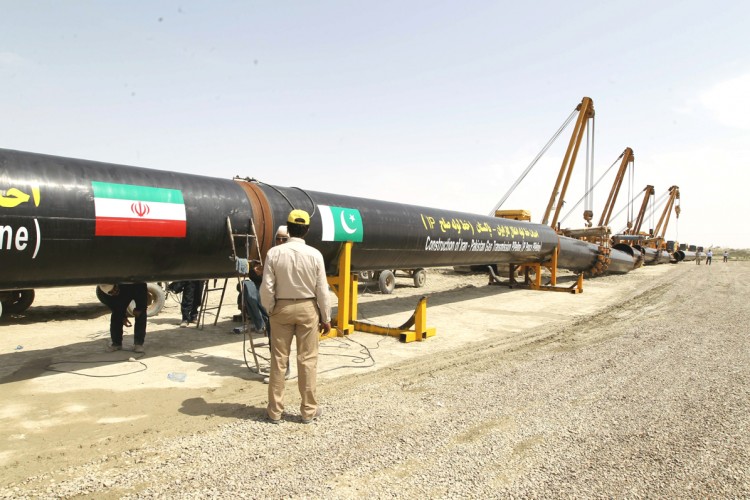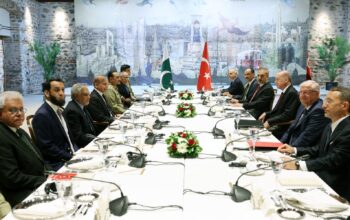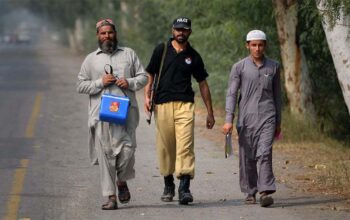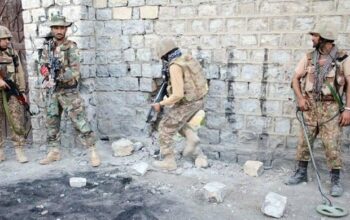By Staff Reporter
ISLAMABAD: Pakistan has decided to start work on a long-delayed gas pipeline project with Iran, despite the threat of US sanctions and a looming deadline from Tehran to avoid arbitration.
The Cabinet Committee on Energy, a high-level body, approved on Friday the construction of an 80-kilometer (50-mile) segment of the pipeline inside Pakistan, from the Iranian border to the port city of Gwadar, where China is developing a strategic hub.
The project, known as the Iran-Pakistan gas pipeline or the Peace pipeline, is aimed at transferring natural gas from Iran’s South Pars fields in the Persian Gulf to Pakistan’s major cities of Karachi and Multan and then further to India. The pipeline was conceived in 1989 and a preliminary agreement was signed in 1995, but it has faced repeated delays due to political and security issues, as well as U.S. opposition.
“The [Cabinet] Committee [on Energy] recommended to start work on the 80 km segment of the pipeline inside Pakistan i.e. from Pakistan border up till Gwadar in the first phase,” said an official statement circulated by the Petroleum Division of Energy Ministry. “The Project will be executed by Inter State Gas Systems (Pvt) Ltd. and will be funded through Gas Infrastructure Development Cess.”
“All the concerned divisions gave a positive nod to move ahead with the project to ensure gas supplies to the people of Pakistan, thereby addressing the increasing energy needs of the country.”
The US has been pressuring Pakistan to abandon the project and instead import gas from Turkmenistan through a proposed pipeline that would pass through Afghanistan and Pakistan, known as TAPI. The US argues that the Iran-Pakistan pipeline would violate the sanctions imposed on Iran over its nuclear program and undermine the efforts to isolate Tehran.
Pakistan, however, has maintained that it needs the Iranian gas to meet its growing energy demand and reduce its dependence on expensive imported oil and liquefied natural gas. Pakistan suffers from chronic power shortages that hamper its economic growth and social stability.
According to Pakistani officials, the 80-kilometer segment of the pipeline will cost about $158 million and will be funded through a gas infrastructure development cess, a levy collected from gas consumers. The segment will connect Gwadar with the Iranian part of the pipeline, where Iran has already completed the construction of a 1,000-kilometer (620-mile) stretch from the gas field to the border.
The officials said that the gas from the pipeline will be used in Gwadar initially, and if the US does not invoke any sanctions, the pipeline will be extended from Gwadar to Nawab Shah, a city in Sindh province, where it will be connected to the national grid. The total length of the pipeline in Pakistan’s territory would be 781 kilometers (485 miles).
The decision to start work on the pipeline comes as Pakistan faces a deadline from Iran to show its seriousness towards the project or face arbitration. Iran has already extended the 180-day deadline till September 2024 and has warned that if Pakistan fails to comply, it will move the Paris-based International Court of Arbitration, seeking a penalty of $18 billion.
Iran has also offered its legal and technical expertise to Pakistan to jointly work out a win-win strategy to materialize the project in a way that arbitration could be averted and Pakistan remains safe from any impact of the US sanctions. An Iranian delegation of experts in international law, legal frameworks and gas engineering is expected to visit Pakistan soon to hold talks with Pakistani counterparts.
The project has been facing delays since 2014, when Pakistan was supposed to complete the pipeline and start receiving gas from Iran. India, which was initially part of the project, withdrew in 2009 over pricing and security issues, and after signing a civilian nuclear deal with the US in 2008.
The project has also been marred by security challenges, as the pipeline passes through the restive province of Balochistan, where separatist militants and tribal insurgents have been waging a low-intensity insurgency for decades. The militants have attacked gas pipelines, infrastructure and security forces in the past, and have threatened to sabotage the Iran-Pakistan pipeline as well.
Copyright © 2021 Independent Pakistan | All rights reserved




